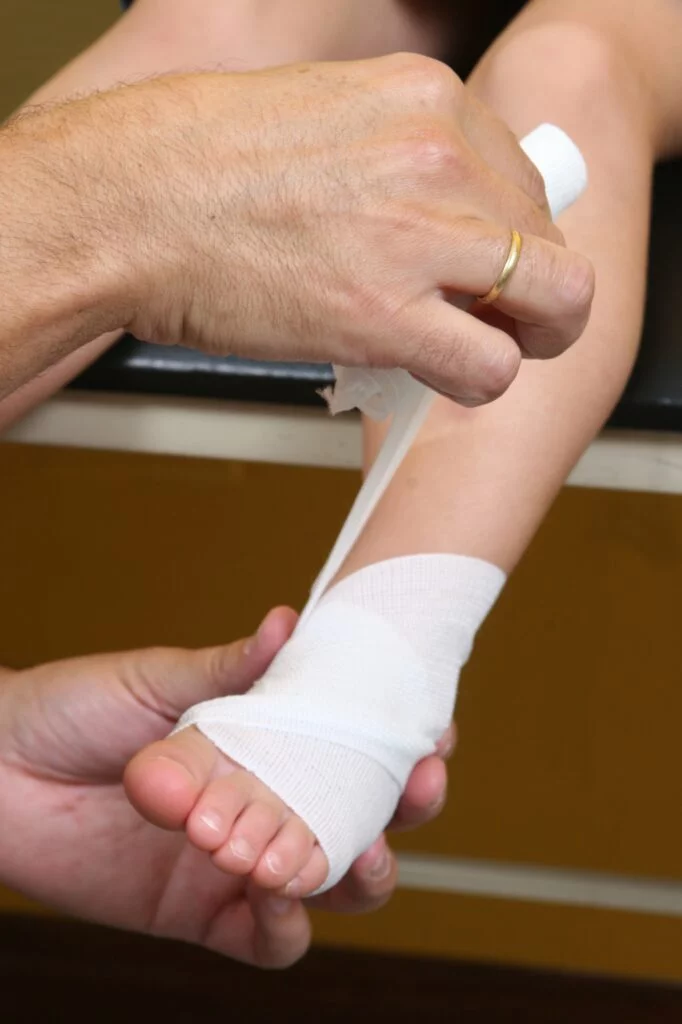Heel pain is common and there are many possible causes. These range from ill-fitting shoes to connective tissue inflammation, to a stress fracture, to plantar fasciitis.
Our Providers can help you determine the root cause of your heel pain and devise a treatment plan, so you get relief. Read on to learn about some of the possible reasons why your heels hurt.
Plantar fasciitis
Plantar fasciitis is diagnosed when the ligament that stretches from your heel bone to the tip of the foot – the plantar fascia – becomes inflamed. When you overstretch or overuse this ligament, it becomes irritated and inflamed. Runners are especially prone to plantar fasciitis, but so are those with especially high or low arches.
You’ll feel the pain directly in the heel, and it’s usually particularly acute after you’ve rested – such as when you get up first thing in the morning or after sitting for a long period of time.
Heel bursitis
Heel bursitis occurs when the fibrous sac at the back of the heel, the bursa, becomes inflamed. You may develop this as a result of an awkward, hard landing or from unsupportive footwear. You feel heel bursitis at the back of the heel or deep inside and may even experience swelling in the Achilles tendon.
Sever’s disease and heel bumps
Sever’s disease usually occurs in children from age 7-15. When the growth plates of the heel bone are repetitively exposed to overuse or microtrauma, young athletes may develop heel pain.
Teenagers may also have heel pain because of a condition called heel bumps. When the heel bone hasn’t fully matured and rubs excessively against something, too much bone may form. Children with flat feet or who wear high heels before the heel bone has fully formed are most vulnerable.
Less common causes of heel pain
Heel pain can truly be caused by a number of issues, which is why seeing a podiatrist is so important. Your heel pain may not fall into a common category and need expertise for proper diagnosis and treatment.
- Tarsal tunnel syndrome in which a large nerve in the back of the foot becomes entrapped
- Chronic inflammation of the heel pad
- Side effects of Achilles tendinosis
- Stress fracture
- Arthritis
- Bone bruise or cyst
Certain medical conditions, including diabetes, gout, and rheumatoid arthritis can cause heel pain, too.
When should I see a podiatrist for heel pain?
Usually, conditions start gradually and worsen with time. If you get treatment early on, you can head off serious complications and longer healing time.
Our expert podiatrists evaluate your symptoms and foot structure to create a customized plan that may include modified activity, medications, physical therapy, bracing, orthotics, and other interventions to heal your heel pain. We can also offer recommendations for home healing, such as ice, proper footwear, and rest.
Get your feet to feeling better at one of our convenient locations. Call for a consultation, or request an appointment online.

